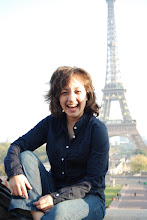Cabaret: Precarious but Resilient
By STEPHEN HOLDEN
Stability is a word not often used to describe New York City’s fragile cabaret world, where only a few can make a full-time living, and the clubs themselves ride an economic seesaw from week to week. But because Manhattan’s three major supper clubs — the Café Carlyle, the Oak Room and Feinstein’s at Loews Regency — are attached to hotels, their survival is not solely dependent on the box office.
That is a stability of sorts. And as the 2009-10 season draws to a close, all three clubs seem to have successfully weathered the economic downturn, at least for now. One sign of precariousness, however, was the shrinking of the Cabaret Convention, an annual clearinghouse for talent at Rose Hall.
Artistically, at least, cabaret is reasonably healthy; an optimist might even say flourishing, as younger singers like Kelli O’Hara, Maude Maggart, Nellie McKay, Johnny Rodgers and Sutton Foster have established themselves as acts that blend singing and patter into intimate, sophisticated entertainments that can’t be found anywhere else.
This year the quality of the dozen best cabaret acts far surpassed that of Broadway’s new musicals, which were so weak that “Memphis,” a flimsy, grossly inauthentic re-creation of the moment in the 1950s when rhythm & blues went mainstream, won the Tony Award for best musical.
Authenticity is a hallmark of cabaret; without it the genre would quickly wither. This is the one arena in which a beloved performer can develop into a musical sage without an expiration date. The songs of Stephen Sondheim, who turned 80 this year, almost require performers with mileage for their insights to be revealed.
Elaine Stritch and Barbara Carroll, both in their 80s, located the essences of songs like “Every Day a Little Death” (recited by Ms. Stritch in her brilliant Sondheim show at the Café Carlyle), and “With So Little to Be Sure Of” (sung by Ms. Carroll at the Oak Room, where it was part of a Sondheim suite for voice and piano).
Among the numerous tributes to the songwriter Johnny Mercer, whose centennial was celebrated last November, the most stirring was a marathon pop-jazz anthology of his songs by Marilyn Maye, now 82, at the Metropolitan Room, the best of New York’s smaller clubs.
If the new blood arriving in cabaret suggests that the genre has secured its future, there is no guarantee. Whether performers like Ms. O’Hara, Ms. Foster, Ms. McKay and Mr. Rodgers will become perennials is anyone’s guess. Right now Ms. O’Hara, with her wholesome good looks and operatically flexible soprano, and the zany, more down-home Ms. Foster, whose debut engagement at Café Carlyle ends this Saturday, are cabaret versions of America’s sweetheart.
Because they don’t need nightclub acclaim as a springboard to the Broadway stardom they have already attained, their commitment to the genre is uncertain. Ms. McKay is a downtown bohemian version of the same thing, a contemporary Doris Day with a feisty political attitude.
Only Ms. Maggart, a Los Angeles protégée of Michael Feinstein and Andrea Marcovicci, has systematically built a cabaret career similar to her mentors’, in which she embodies a genre-hopping 21st-century film noir woman of mystery. Mr. Rodgers, who leads his own band, suggests a cross between a grown-up Andy Hardy and the young Peter Allen.
Because Mr. Feinstein has his own club in which he regularly performs, he is cabaret’s unofficial godfather. He has developed from an intimate singing pianist into a dynamic standup entertainer who swings like a polite Sinatra and is an outspoken true believer in the superiority of the prerock canon, about which he knows more than almost anyone.
In the last two years he has gone out of his way to form musical partnerships. “The Power of Two,” his duet show with the Broadway heartthrob Cheyenne Jackson last June, injected a note of gay pride into a cabaret world that, despite its sizable gay audience, is reticent about sexuality, at least in its upper echelon. His duet shows with Christine Ebersole and Barbara Cook (with whom he is returning for a month of performances in September) and David Hyde Pierce, set a standard of grownup entertainment that has been almost completely abandoned by a mainstream pop culture in thrall to perpetual adolescence.
This kind of teamwork can be found in other musical partnerships, including those of Sandy Stewart and Bill Charlap, K T Sullivan and Mark Nadler, Victoria Clark and Ted Sperling, Eric Comstock and Barbara Fasano, and most of all John Pizzarelli and Jessica Molaskey. In wit and musical savvy, nothing matches their smart conceptual shows, in which Mr. Pizzarelli’s jazz guitar and crooning and Ms. Molaskey’s theatrical jazz singing fuse into something that’s greater than its parts.
Their Café Carlyle show last fall, “Lost and Found,” which included renditions of everyone from Duke Ellington to Joni Mitchell, was the season’s finest, caviar in a world of canned tuna. Once you’ve acquired the taste, there is no substitute.

No comments:
Post a Comment